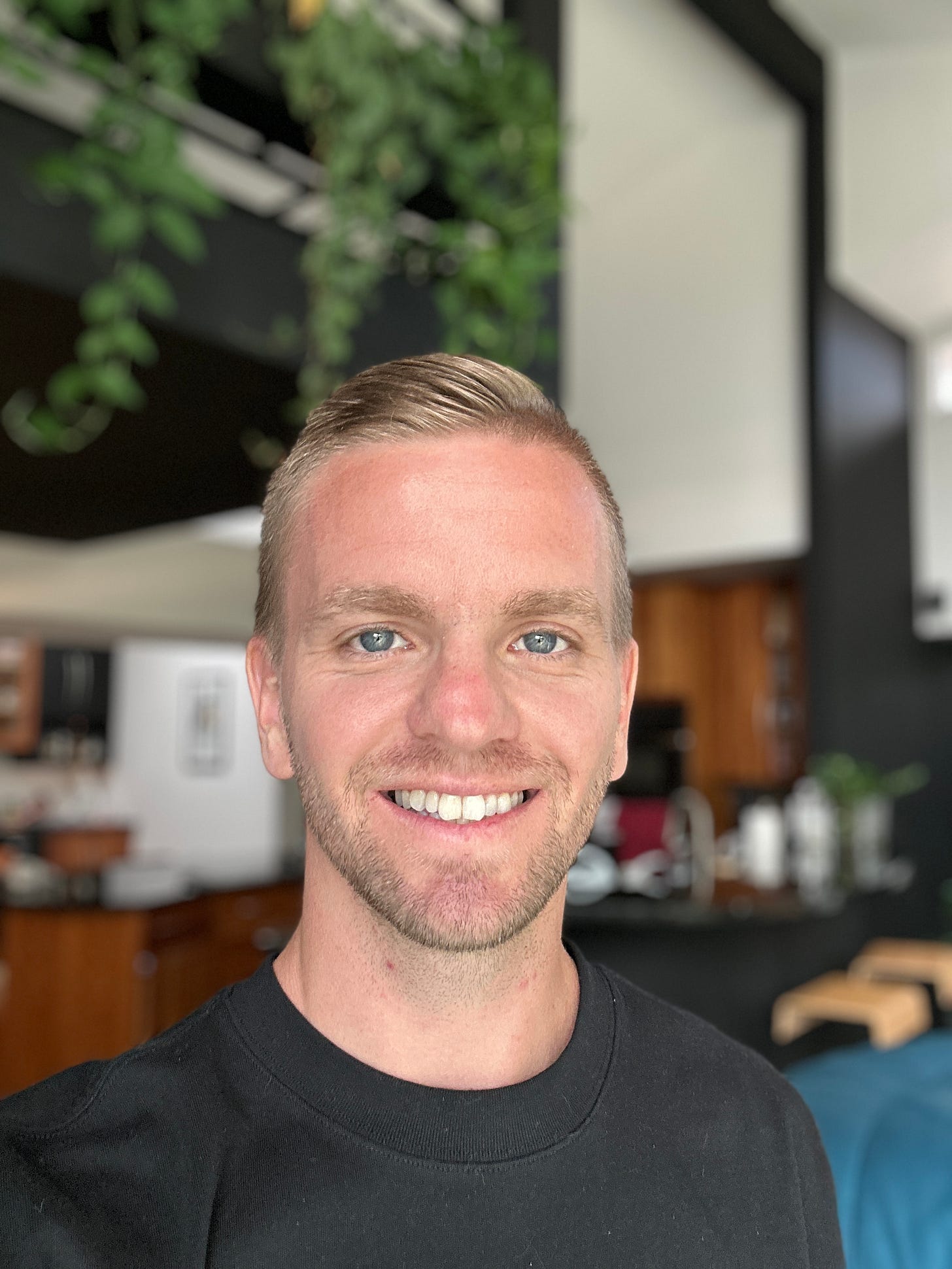Craft & Personal Healing: An Interview with Moxie Coffee's Founder
Join us for an in-depth conversation with Matt Heltzel, founder and head roaster of Moxie Coffee in Phoenix, Arizona, about entrepreneurship, mental health, and roasting uncommon coffees.
This interview has been edited for length and clarity.
Dear coffee lovers,
We recently jumped on a call with Matt Heltzel, founder and head roaster of Moxie Coffee in Phoenix, Arizona, USA, to learn about his backstory and industry experience. Matt’s energy and passion is truly intoxicating. The Coffee Club team was left inspired by his journey. Matt took a massive gamble by starting Moxie in 2021. He opens up to us about his battles with mental health and his journey to triumph today.
So grab yourself a fresh cup of coffee and we hope you enjoy our conversation with Matt. 👀
Jon: I would love to hear a little bit about your background. How did you get into specialty coffee? And how was Moxie incepted?
Matt: I got into coffee in college. I was struggling to stay awake in class and started brewing Folgers with a $10 Mr. Coffee from Amazon. I didn't really have any money, so making coffee at home seemed practical. Eventually, I began visiting the campus cafe, experimenting with lattes, and slowly getting more interested. A friend of mine was a home roaster. One summer, I stayed with him while working at a go-kart track. He roasted coffee on his patio using an old West Bend Poppery popcorn popper. We’d buy green [coffee] beans off Sweet Maria’s and roast half a pound at a time. That was around 2012. I started reading books by people like Scott Rao and engaging with the online home roasting community.
Later that year, I moved to Denver and got a barista job. I spent three years there, eventually becoming the GM, learning operations and systems. I left for a more specialty-driven role at Corvus Coffee, where I learned a lot, especially the value of having a dish washer if you're doing dine-in. We didn’t have one the first six months. I spent hours washing dishes.
From there, I joined Coda Coffee, which was my final stop before launching Moxie. Coda had just won Macro Roaster of the Year (2014) and roasted at scale—millions of pounds annually. I roasted on a 60-kilo machine and worked with everything, from lower-scoring commodity coffees to 90+ point Ethiopians. Their approach shaped how I think about quality, scale, and accessibility—even if I didn’t always fully align with their philosophy. My time at Corvus and Coda is really where I learned everything that I know about developing coffees properly, and how to roast coffee great.
After leaving Coda in 2017, I ran my own marketing agency for four years. Marketing was self-taught. I’ve always loved the psychology behind it. But, it’s extremely volatile in terms of getting and keeping clients, so I eventually decided to go all in on Moxie. I signed the lease in December 2019 right before the pandemic. I didn’t have the money, so I applied for a loan. Once COVID hit, the bank pulled out. Every bank in Arizona said no—until one guy, a former local banker, referred me to someone in Utah who specialized in SBA loans. That guy saw potential in the business plan and made it happen.
The drive to start Moxie was rooted in entrepreneurship. My mom got me on a paper route in third grade. She was very entrepreneurial too and kept me involved with these odd jobs like managing a youth center, being a lifeguard, etc. I hated it, but it was formative. That work ethic, especially growing up small and scrappy, really shaped me. Moxie was born out of a desire to create something meaningful and beautiful. Something that reflected my values.
Huey: Before officially launching Moxie, what were some of your inspirations outside of coffee?
Matt: One of my biggest inspirations was a mentor I had in junior high. At the time, I needed a father figure, and though our relationship wasn’t perfect, he had a lasting impact—especially around entrepreneurship. He grew up in a similar small Midwestern farm town, and his perspective challenged the limitations I felt in that environment.
Where I came from, dreaming big was often met with skepticism, but he had this expansive vision and believed in doing meaningful work not out of ego, but because we’re meant to create and share beauty. That mindset helped unlock something in me. Even though our relationship grew more complicated over time, I credit him for helping me tap into the deeper part of myself, the part that wants to build, create, and stretch what’s possible. I think that fire lives in most people, but institutions often try to suppress it. He provided me with the perspective to lean into it.
Huey: Moxie’s design and brand language are phenomenal. How important was that element during Moxie’s early stages?
Matt: I worked with a brilliant branding studio called The Made Shop out of Denver. They spent two hours on a Zoom call just walking through my story and what Moxie meant to me. I told them I didn’t want the branding to be overly literal or self-indulgent which they totally understood and assured me it wouldn't be. We went through a couple cracked cup iterations before landing on the current logo. It felt slightly off-kilter in a way that invites curiosity. To me, it symbolizes how beauty can exist in imperfection.
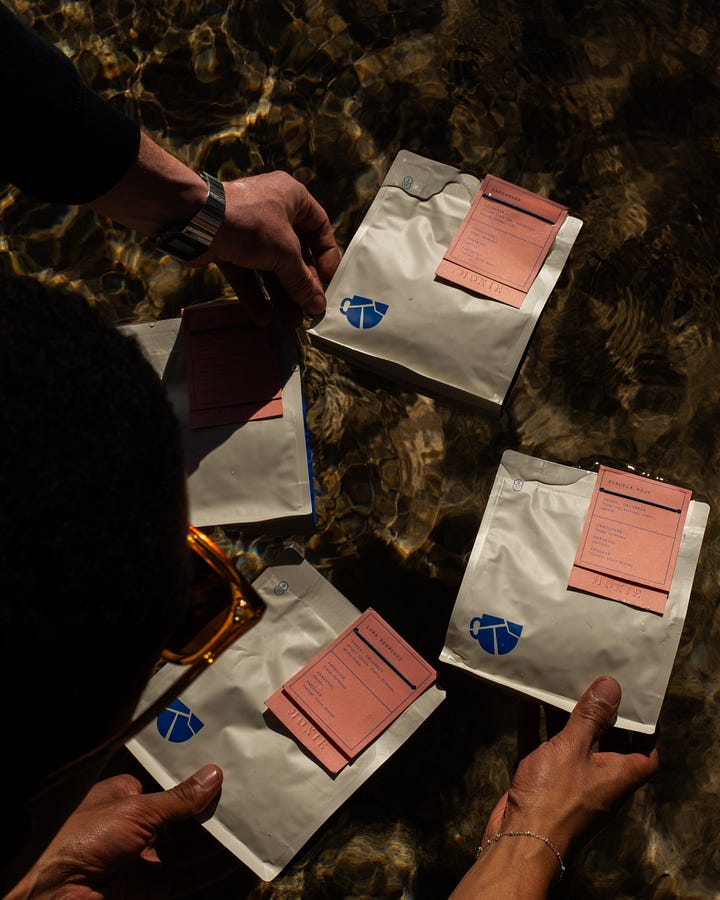
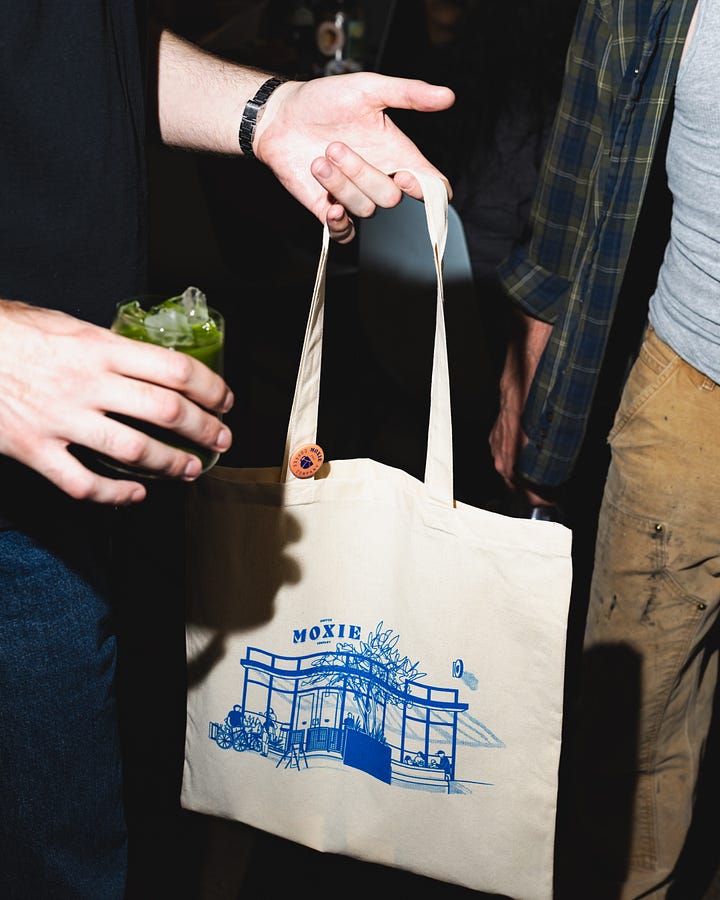
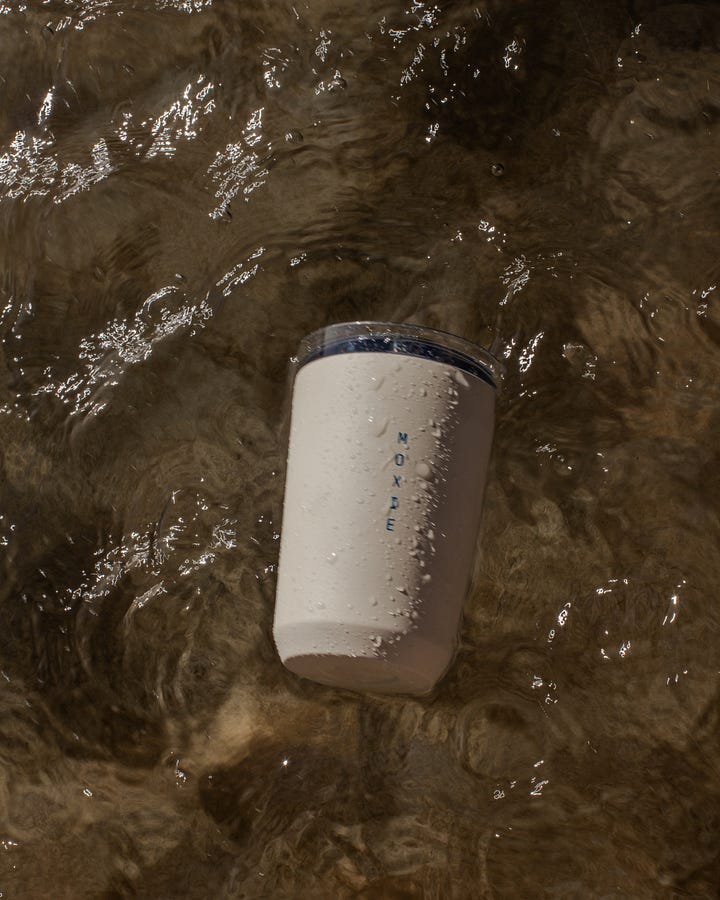
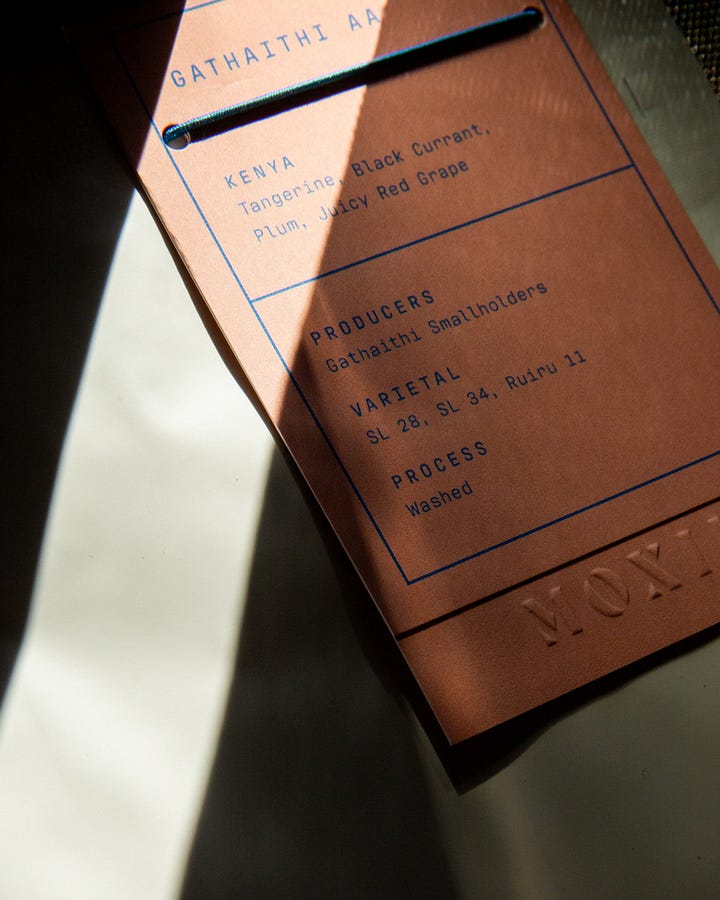
That cracked cup was tied directly to my own journey. I spent about six years and $30,000 on therapy. Most of it was charged to a high-interest credit card because I couldn’t afford it otherwise, but it was worth it. My therapist once said therapy is like compound interest, the real payoff is years down the road. He was right. That work helped me build a life and a business that brings me joy. During those years, I’d finish barista shifts and head straight into therapy which made coffee and personal healing deeply intertwined for me.
I also found Brené Brown during that time. Her work on shame and vulnerability really spoke to me. If you go on Youtube and look up Brené Brown you'll see the TED Talk—it's incredible. Basically, her message is: people with internalized shame—when they do something bad, they don't say, “Hey, I made a mistake” or “I did something bad”—they say “something's wrong with me.” Therapy helped reframe that. Brené’s message was: not only is imperfection okay, it’s what makes us relatable.
I used to obsess over perfect lattes, perfect coffee, and flawless service—always chasing some future version of success. But I learned to slow down and appreciate the imperfect present. That’s what the cracked cup means to me. And to do that well? It takes Moxie—grit, resilience, and the courage to show up authentically.
The name had to be meaningful but not cheesy. I didn't want to name it something that felt lame like “therapy coffee,” you know? I wanted it to reflect the energy of doing hard things with confidence, heart, and having “Moxie.” Over time, that message has drawn in people who really resonate with it, and our team just keeps getting stronger every year because of that.
Jon: How’s the speciality coffee culture in Phoenix, AZ? Is there a pretty well established scene?
Matt: I think it’s good, and better now than it’s ever been, at least in my 10 years here. Phoenix technically includes multiple cities, Mesa, Gilbert, Chandler, etc., so shops are scattered throughout the valley. Places like Pair Cupworks in Mesa, Mythical Coffee or Hooligans in Gilbert, Futuro and Dialog downtown, they’re all great, but far apart. It can feel disconnected at times because of travel.
Some shops follow a kind of expected formula: one café starts roasting, opens a second [location], then grows to 10. That model feels more like a capitalist machine and never really resonated with me. I realized as we grew, that for Moxie to have impact, staying small and hyper-local was more valuable. A single hub, café/roastery can better serve the community and allow more creative ways to generate revenue.
Culturally, people here are supportive. I visit other shops, they come to Moxie. There’s no gatekeeping. Compared to places like Denver, there’s less hardcore specialty here. Few shops offer five espressos or an eight-coffee pour-over lineup. There’s a lot of room to grow, but it takes people willing to commit to that vision.
The term “specialty” is becoming a buzz word. More people use the word without really doing it or completely understanding it. That’s why we use other phrases like "roasting uncommon coffee." Creating a specialty coffee shop just for coffee nerds doesn’t work if you’re only selling three cups an hour. You have to open up to everyone. We try to say: “This is what you’re used to drinking, but done with great ingredients and it tastes better.” You only get a few seconds to make that point, but it’s enough for some to say, “Whoa, I’ve never had anything like this.” Craft beer made that leap. Some people never go back to mass-market beer. Same goes for coffee.
We aim to serve both the everyday drinker and the coffee nerd, if you will. We’ve got 8-10 pour-over coffees that are wild. We spend hours dialing those in. But that’s not our only audience. We want to be extremely approachable while understanding we’ll be misunderstood by some. And that’s okay.




